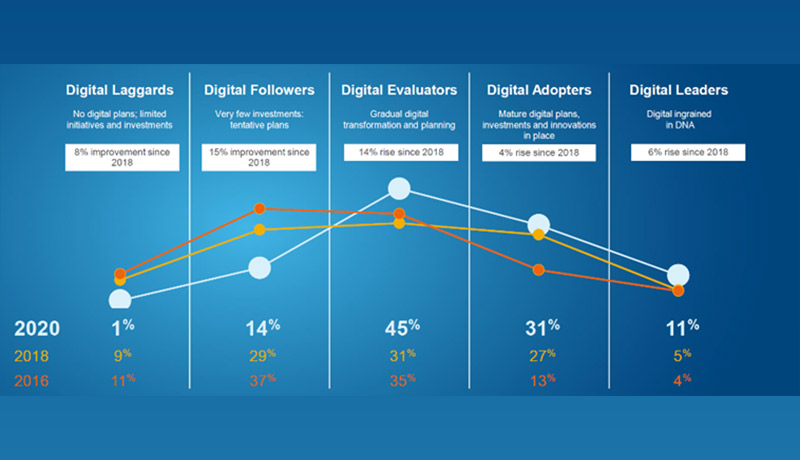
Dell Technologies released the results from its ‘Digital Transformation Index 2020’, revealing that organizations in UAE and Saudi Arabia are two steps ahead of the rest of the world when it comes to digital transformation.
According to the study, 90 percent of organizations in UAE and Saudi Arabia have fast-tracked, at least, some of their digital transformation programs this year – accomplishing in a few months, what would normally have taken years. This is compared to the global benchmark of 80 percent, suggesting that organizations across the region have shifted their digital transformation programs into high gear. In fact, 85 percent of organizations in UAE and Saudi Arabia admitted to re-inventing their business model as a result of disruption – which is 6 percent ahead of organizations globally (79 percent).
The Dell Technologies Digital Transformation Index is a global study that analyses and maps digital transformation progress of mid-to large-sized companies across the world. With 5300 C-Suite respondents surveyed globally from 23 countries from a variety of industries and functions, the Dell Technologies Digital Transformation Index 2020 compares respondents from UAE and Saudi Arabia with global peers.
When comparing the results from the last Digital Transformation Index in 2018 to this year, UAE and Saudi Arabia saw a 6 percent rise in the number of Digital Leaders (the most digitally mature organization) last year. Digital Adopters (the second most digitally mature group) grew from 27 percent in 2018 to 31 percent in 2020.
This can be attributed to the level of digital transformation acceleration happening in the UAE and Saudi Arabia, and hence, it is no surprise that the 2020 Digital Transformation Index also recorded a fall in the number of least digitally mature groups – namely, the Digital Laggards and Digital Followers – since 2018. These organizations are moving up, into the Digital Adopter and Digital Evaluator groups, which have expanded in tandem.

Using a curve visual, the DT Index plots global digital transformation progress vs digital transformation progress in UAE/KSA from 2016 till 2020.
The study also shows that organizations in UAE and Saudi Arabia are keeping pace with global investment levels in the newer technologies including Edge and AI. In addition, organizations in UAE and Saudi Arabia are a solid 6 percent ahead of their global competitors when it comes to investing in 5G infrastructure demonstrating their clear commitment to develop state-of-the-art connectivity infrastructure.
Looking beyond 2021, it appears that organizations in UAE and Saudi Arabia also have high confidence in Edge computing’s capabilities. As such, Edge application investment is expected to be higher (51 percent) among organizations in UAE and Saudi Arabia compared to the global average (28 percent). According to the 2020 Digital Transformation Index, organizations across the region are particularly confident that the Edge strategies being rolled out will future-proof their business. The 2020 Digital Transformation Index lists the top technology investments in UAE and Saudi Arabia over the next one to three years as follows:
The pandemic may have catalyzed digital transformation across the globe, but continuous transformation is challenging. According to the latest Digital Transformation Index, organizations are facing several barriers to transformation. The top three barriers to digital success cited by respondents in the UAE and Saudi Arabia include: